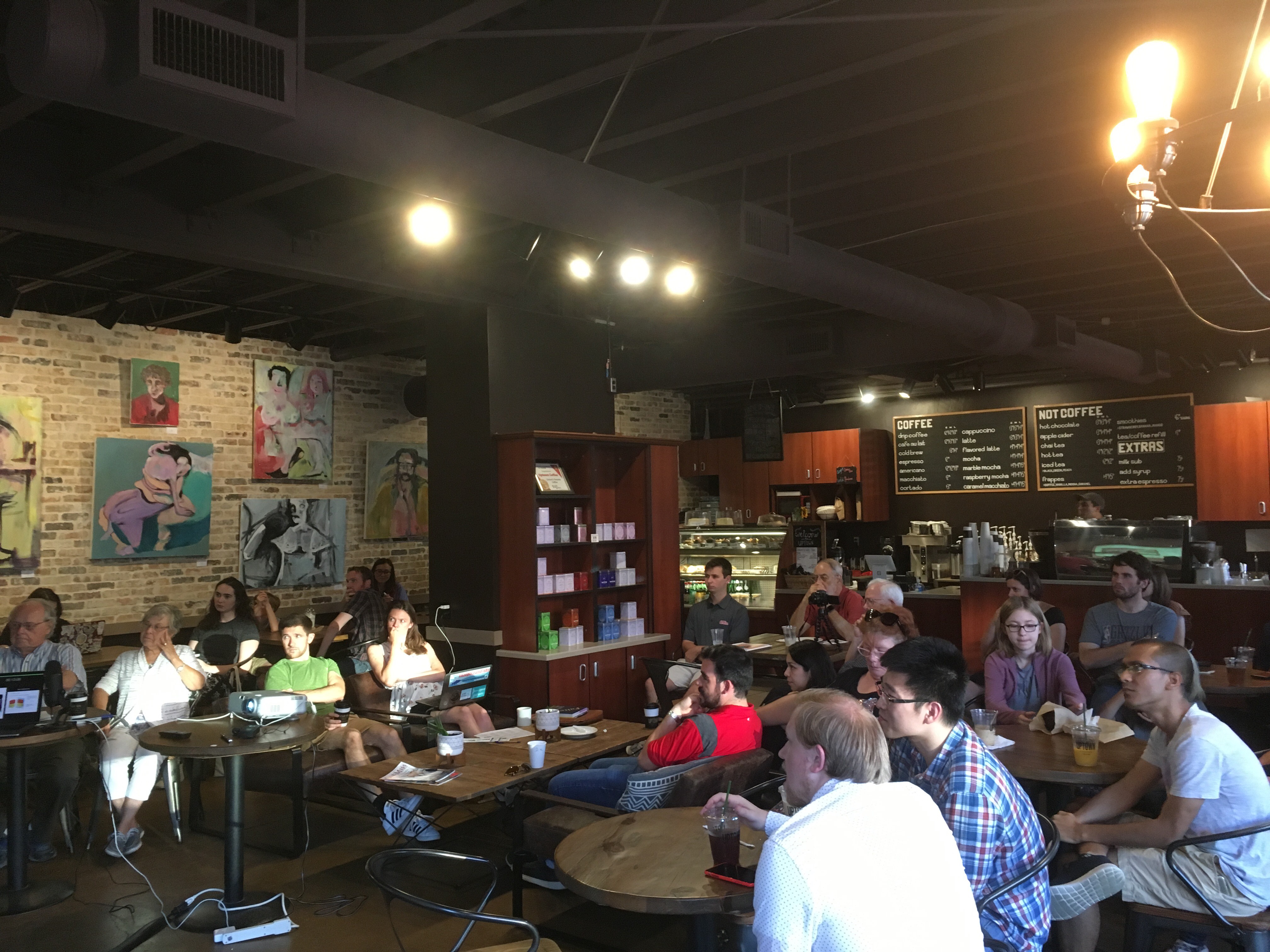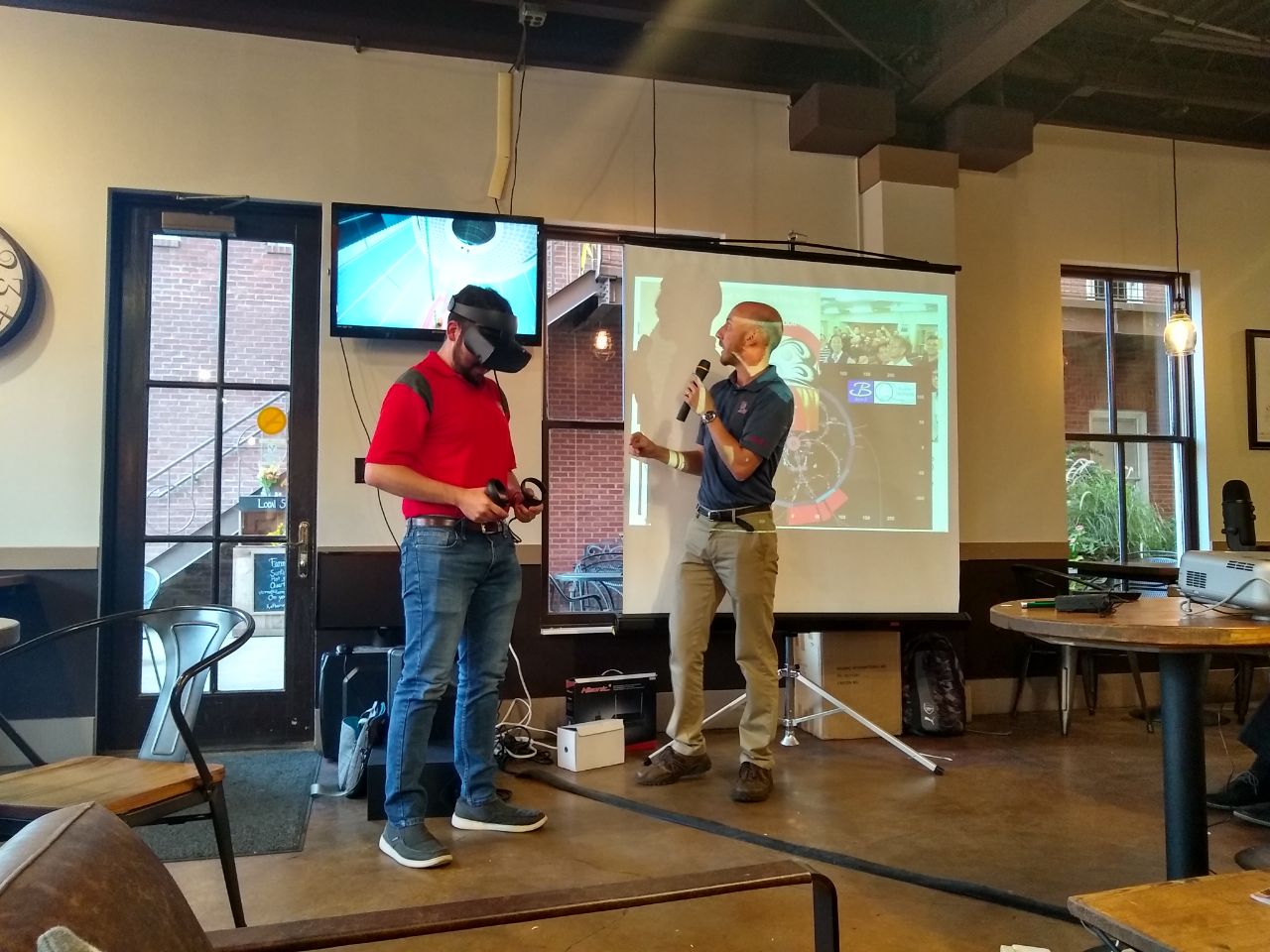November 2019
Dr. Susan Balenger(The University of Mississippi
Department of Biology): The Silence of the Crickets: Rapid, repeated loss of sexual signals in Hawaii
Charles Darwin was convinced that biological evolution only occurred over long geologic timespans. More recently, though, researchers have been watching and documenting evolutionary changes happening over human timescales. Dr. Susan Balenger studies one particularly dramatic example of rapid evolution amongst wild populations of field crickets on the islands of Hawaii: following the introduction of a parasitic fly, local male crickets lost their ability to chirp. Unfortunately for these males, chirping is how they attract mates. And all of this happened in less than 5 years - the blink of an eye in evolutionary terms. Dr. Balenger will discuss how and why interactions between these species could produce silent crickets, the ways that cricket mating behaviors have subsequently changed, and what it is like to watch evolution in action.
Podcast for this talk.
November 19, 2019, 6:00pm - 7:00pm
Uptown Coffee, 265 North Lamar Blvd, Oxford
October 2019
Dr. James Cizdziel (University of Mississippi
Department of Chemistry and Biochemistry): Microplastic Pollution: What's the BIG deal?
Plastics are everywhere! We are living in an age of plastics, much like the Bronze and Iron Ages. Whereas plastics are cheap and useful, they are also carelessly discarded and mismanaged. Unfortunately, this has resulted in widespread plastic pollution, including the infamous ocean garbage patches. Worse, plastics degrade by UV-radiation, microorganisms, and mechanical action (e.g. waves), yielding smaller and smaller particles called micro- and nano-plastics. These small plastic particles accumulate in the food chain and have even been detected in rain! They also accumulate contaminants, including toxic heavy metals, persistent organic pollutants, and pathogens. I will introduce microplastics as an emerging global pollutant, discuss its sources and impacts, and highlight potential solutions and things we all can do to reduce plastic waste.
October 15, 2019, 6:00pm - 7:00pm
Uptown Coffee, 265 North Lamar Blvd, Oxford
September 2019
Dr. Jake Bennett (University of Mississippi Department of Physics and Astronomy): Searching for New Particles with the Belle II Detector.
At its heart, experimental physics is concerned with explaining the world around us through the careful acquisition and study of information. My particular field, experimental elementary particle physics, is focused on understanding the universe at its most basic level by studying the fundamental building blocks of matter. These subatomic particles interact with each other in complex and sometimes very strange ways that make a qualitative description of them rather challenging. Scientific collaborations made up of physicists and engineers from all over the world are dedicated to building massive detectors with which to study subatomic particles and their interactions. One of the most anticipated of these projects is the Belle II experiment, which started taking data last year at the KEK national accelerator facility in Tsukuba, Japan. Belle II is designed to record massive amounts of data to allow physicists to study highly suppressed reactions that may give clues to new particles and interactions beyond the Standard Model of particle physics. I will introduce some of the basic concepts of particle physics, including how we gather information, and discuss a few of its more exotic aspects.
September 17, 2019, 6:00pm - 7:00pm
Uptown Coffee, 265 North Lamar Blvd, Oxford
April 2019
Dr. Leo Stein (University of Mississippi): The Truth about Black Holes.
Black holes: the most powerful objects in the universe. Are they really ravenous space monsters, or merely misunderstood? What does spaghetti have to do with black holes? Are black holes actually black? We'll go over what astrophysicists know and don't know about black holes, and try to clear up some common misconceptions.
April 9, 2019, 6:00pm - 7:00pm
Uptown Coffee, 265 North Lamar Blvd, Oxford
March 2019
Dr. Ryan C. Fortenberry (University of Mississippi): The Alien Molecules of Space.
Molecules float around everywhere even in the “vacuum” of space. These same little tiny pieces of everything that make up our bodies, our planet, and the air we breathe are actually also floating around between planets, around stars, and even are spread in between galaxies. Some of these molecules are familiar to us like water, methanol, and carbon dioxide. However, some are strange like protonated N2, the wing-shaped C3H2, individual salt molecules, and even one with a noble gas atom in ArH+. Some even might be the building blocks of molecules which could go on to make up our muscles, cells, and DNA. These molecules both foreign and familiar are lurking in the depths of space even when we think nothing is there.
This talk will describe what molecules are present in space, how they have been detected, and what that means for us here on Earth.
Dr. Nikki Reinemann (on behalf of Mississippi State University): Molecular Motors — Driving Life at the Nanoscale
Molecules and their actions are the basis of life. Even our seemingly large-scale movements, such as walking or breathing, are powered by tiny protein machines known as molecular motors. Motor proteins are powered by a chemical fuel called ATP, just as our cars are powered by gasoline. The fuel allows the motor to make structural changes that facilitate movement within the cell and the body. The motors can transport essential cargo in the body, power cell translocation, drive cell division, and when combined together, allow organisms to move. Defects in these proteins are the basis of many diseases. At the same time, due to their essential nature, molecular motors are also drug targets to stop cancerous cell growth. Research in the Reinemann lab focuses on understanding the behavior of motor proteins at the single molecule and cellular system level using a method called optical trapping. This talk will describe specific functions of molecular motor proteins in life and disease, their behavior on the nanoscale, and methods to study them as single molecules.
March 19, 2019, 6:00pm - 7:30pm
Uptown Coffee, 265 North Lamar Blvd, Oxford
February 2019
Erin Calipari (Vanderbilt University School of Medicine): The Neuroscience of Addiction.
We are currently in the middle of an opioid epidemic. Thus, understanding the behavioral and neurobiological factors that drive drug addiction is urgent and critical to public health. One of the most important aspects of drug addiction is the active decision to seek out and take the drug, most often at the expense of other rewards or in the face of negative consequences. Normally, organisms use information in their environment to make decisions that maximize positive – and minimize negative – outcomes. However, addicted individuals value taking drugs above all other outcomes, an effect that drives their decision- making strategies. By using animal models that allow animals to "self-administer" drugs we can determine which cells in the brain are controlling their decision to take the drug and then silence or activate these neurons to change the way that animals are behaving in their environment. By combining complex behavioral models with tools that allow us to record and manipulate different cells and circuits in the brain in awake and behaving animals we can determine how these cells help animals make decisions and develop pharmacological tools to promote abstinence and prevent relapse in addicted individuals.
February 19, 2019, 6pm - 7pm
Uptown Coffee, 265 North Lamar Blvd, Oxford
Photos



